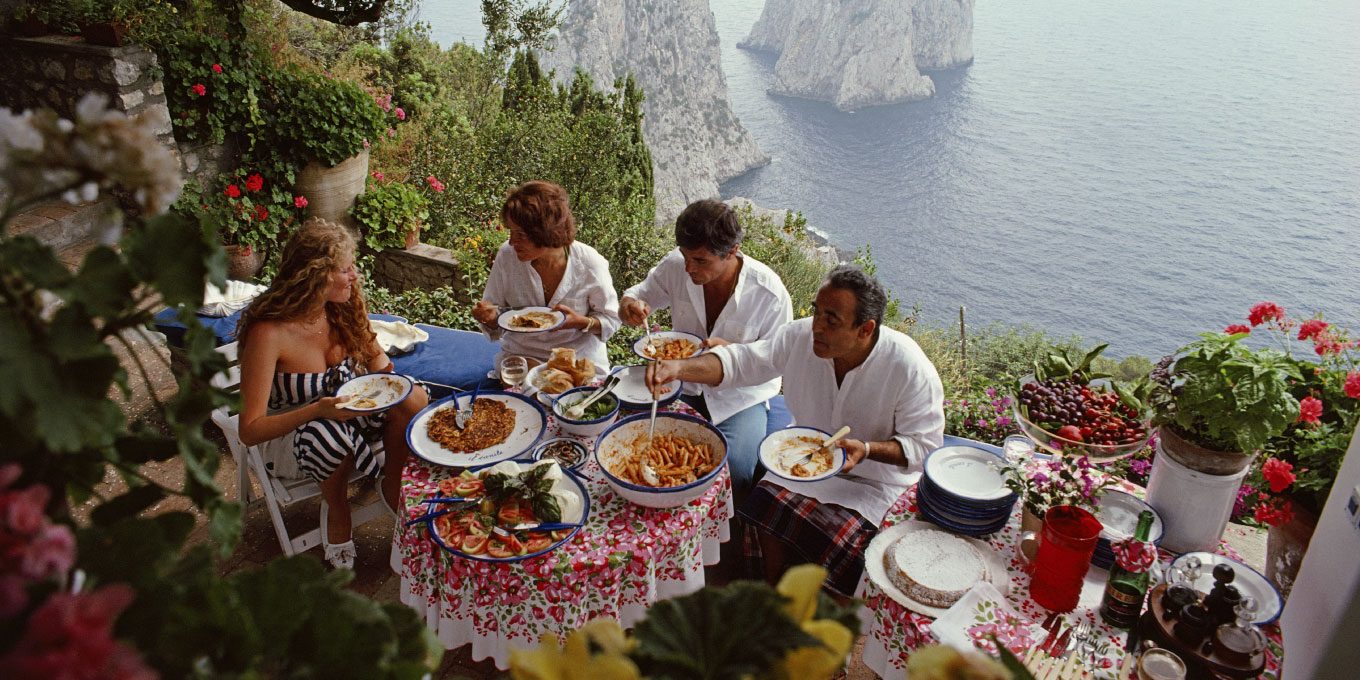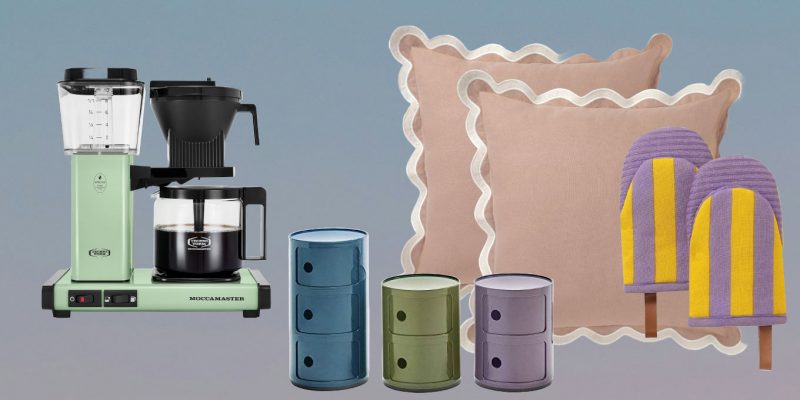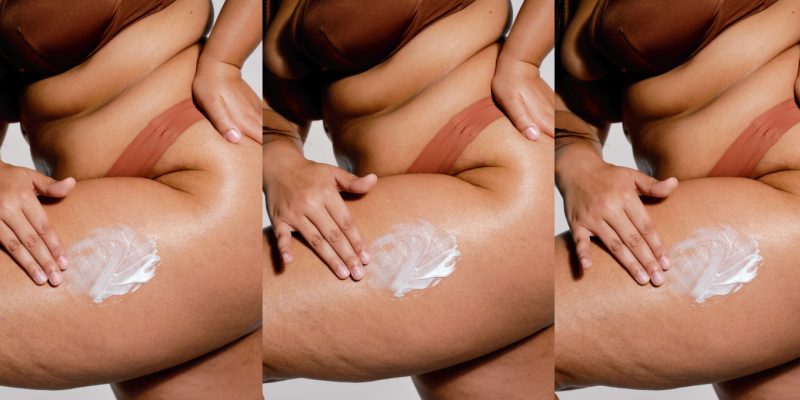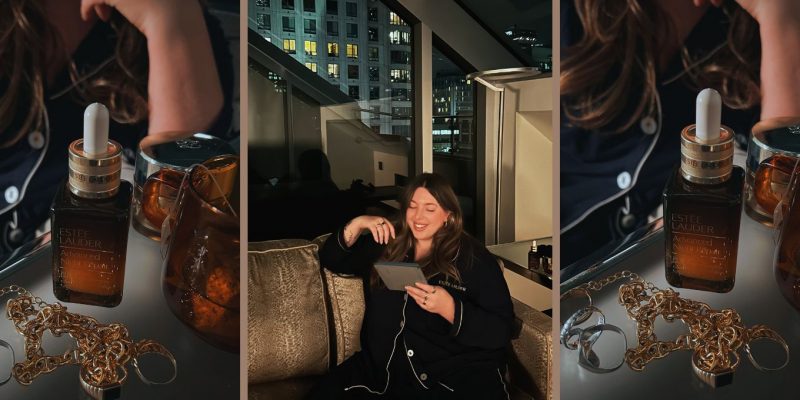Health & Fitness
Could the Secret to Longevity Be Actually Enjoying Your Time on Earth?
It turns out that the same factors that help you live longer make your life more pleasurable along the way too.
by : Katherine Lalancette- Apr 3rd, 2024

Getty Images
A few weeks ago, my husband was trying to convince me of the benefits of a cold-plunge tub. “The surface ices over and you have to break through it to get in the water,” he explained excitedly. “Like crème brûlée but for people who hate joy,” I teased.
See, the two of us hold very different definitions of what constitutes wellness. For me, the pinnacle of self-care is a warm bath and a good book. For him, it’s 6 a.m. CrossFit and now, apparently, cold-plunging. Opposites attract, they say.
So when we started watching Live to 100: Secrets of the Blue Zones, a Netflix docuseries investigating the lifestyles of people around the world who live the longest lives, I felt mildly vindicated. What struck me most about the show was how the residents of these longevity hot spots—whether Sardinia, Italy, or Ikaria, Greece, or Nicoya, Costa Rica—weren’t submitting themselves to punishing exercise regimens or restrictive diets. They were eating carbs and drinking wine and having afternoon naps. In fact, their daily lives looked a lot like my idea of a dream vacation.
“After 20 years of studying the world’s longest-living people, I’ve come to believe fervently that CrossFit, cold-plunges and fad diets don’t work, haven’t worked and will never work,” Dan Buettner, the series’ host, tells me matter-of-factly. “But we’ll continue to buy into them because they’re marketed so beautifully and they offer us hope in an environment that makes it very hard for us to be healthy.”
Buettner’s fascination with longevity began in 1999, back when he owned a content company that specialized in solving mysteries. Searching for a new subject matter, he stumbled on a World Health Organization report showing that people in Okinawa, Japan, were outliving the rest of the planet. “We did a quick expedition there, and I absolutely fell in love with the topic,” says the journalist. A few years later, after he’d sold the business and was working for National Geographic, he pitched a more involved version of the project and began combing the globe for other “blue zones,” a.k.a. regions whose inhabitants live longer than average.
He has since travelled the world studying centenarians and has published several bestsellers sharing his discoveries. So what has he found to be the secrets to living a longer, healthier life?
“Having a bowl of fruit in your kitchen is going to do more to govern your snacking decisions than any sort of heroic discipline.”
Let’s start with what these people eat. More than two-thirds of their diets consist of carbs—mostly complex carbs, that is, such as legumes, whole grains, fruits and vegetables. They also enjoy bread, but not just any kind; sourdough seems to be a common denominator. Compared to bread made with instant yeast, it boasts a lower glycemic index, is easier to digest and contains beneficial prebiotics. As for animal products, people in blue zones don’t eat a whole lot of meat—around 55 grams or less about five times a month—and they mostly cook with plant-derived oils, like olive oil, rather than animal fat.
Oh, and wine is very much on the menu. “I’m very familiar with all the research that asserts that no level of alcohol is safe, but I can tell you that [people in] these blue zones have been drinking wine for thousands of years and that 80 to 90 percent of the people who are making it to 100 and are sharp until the end drink wine every day of their lives,” says Buettner.
As for the most crucial ingredient in any longevity diet? That might surprise you. “It’s taste,” says the expert. “We never successfully pursue health and longevity through restriction.” Because when we restrict anything, we eventually end up running out of willpower, which is why eating “well” should be so enjoyable that it becomes unconscious. In the same vein, Buettner recommends keeping healthy snacks out in plain view as we’re all on a “see food” diet, as he likes to say, meaning we eat the food we see. “Having a bowl of fruit in your kitchen is going to do more to govern your snacking decisions than any sort of heroic discipline.”
And it’s not just what people in blue zones eat but how they eat. They’re not shovelling in mouthfuls of a Tupperware lunch over their laptops or having dinner alone in front of the TV. Instead, they’re gathering around the table with loved ones to share a meal, which brings us to another key to prolonging our lifespan: community.
“We know nutrition is really important for longevity, but so is this kind of social support,” says Allison Aiello, a professor of epidemiology at Columbia University, whose research has focused on aging and community health. “There are a lot of studies that suggest social networks reduce mortality and chronic diseases.”It’s not so much about being a social butterfly; rather, it’s about cultivating meaningful connections, as findings show that quality, not quantity, matters most when it comes to the health benefits of relationships.
Interestingly, many of the ways people in blue zones approach eating also apply to physical activity. For starters, a great deal of it is unconscious, says Buettner. “They walk to work, their kids walk to school, they walk over to their friend’s house, they have a garden out back,” he says. “If you live in a walkable neighbourhood, you’re mindlessly going to get about 20 percent more physical activity than if you live in a suburb where you drive everywhere. If you take mechanical conveniences out of your home or put plants in your home that require watering, you’re going to burn more calories a day without thinking about it. If you adopt a dog, you’re going to walk twice a day without thinking about it.”
“Just the act of being one with nature and trying to be present and in the moment when we’re taking a walk or something like that has been shown to be incredibly beneficial for people’s mental health.”
Exercise in blue zones also often tends to be communal. For example, people might get together to play pickleball, as is common in Loma Linda, a Southern California city where residents live up to a decade longer than the average American. Or they might practise tai chi outside with friends, which is the case for many Okinawans.
The “outside” part is also vital, says Aiello. “Just the act of being one with nature and trying to be present and in the moment when we’re taking a walk or something like that has been shown to be incredibly beneficial for people’s mental health. And we know there’s this intricate relationship between mental health and the body: When we have higher levels of stress, that releases hormones like cortisol, which can be detrimental to our health and immune system.”
Sleep plays a major role for similar reasons, she says, as getting enough shut-eye has been linked to less stress and improved mood—not to mention a lower risk of developing certain diseases, such as Alzheimer’s. But there’s another kind of rest that’s also essential: leisure, a pursuit often undervalued in our productivity-obsessed culture.
“The quest for productivity is like drinking sea water,” says Buettner. “The more you drink, the thirstier you get. We live in an environment where we have to make more money to buy our insurance and pay our rent and wear the styles that keep us socially accepted, and that’s a pity. It’s a waste of a good life.”
He recalls a particularly telling moment during a recent trip to Europe. He found himself in a bustling town square in the middle of the afternoon—a time when everybody back in North America would be busy working away at their desk. “People were hanging out, drinking coffee and talking. Kids were running around—I don’t know if they were playing hooky from school, but there they were. It was joyous, and it’s the way humans should live their lives.”
Joy—that’s really what it seems to come down to when you put everything together.
It’s the antithesis of so much of what we’ve been taught about wellness—namely, that eating “right” requires saintlike restraint and exercise needs to “burn” to be effective. No pain, no gain, right? Well, not so much.
Contrary to what Gwyneth and the entire wellness industry—estimated to be worth US$5.6 trillion in 2022—would have us believe, the research shows that being healthy isn’t about subbing bone broth for meals or getting yelled at by some drill-sergeant-like fitness coach or doing anything else that feels like voluntary torture. “So many of the things that help us get to 100 are joyous,” Buettner assures me. “It’s joyous to eat meals with your family; it’s pleasant to live in a place where you’re interacting with nature and moving naturally.”
The data on the subject says it all. Blue zones don’t just stand out in terms of life expectancy; they also rank in the top 20 percent of the happiest places in the world. It turns out that the same factors that help you live longer make your life more pleasurable along the way too. As Buettner bluntly puts it, “These Silicon Valley billionaires who are starving themselves and shooting themselves up with the blood of young people… in my opinion, all they’re doing is prolonging a shitty life as opposed to actually living.”
Of course, if CrossFit and cold-plunging make your heart flutter, then, by all means, do you. My husband, for one, still enjoys his crack-of-dawn HIIT sessions. But now, we make an effort to sit down at the dinner table, even if it’s a weeknight and just the two of us, to savour a meal with no distractions. We dunk thick slabs of sourdough—bought on a stroll through the neighbourhood—in gilded olive oil and raise a glass to the day. Because you know what’s even better than living a long life? Living a long happy life.
Newsletter
Join our mailing list for the latest and biggest in fashion trends, beauty, culture and celebrity.
Read Next

Decor
10 Amazon Decor Finds That Belong in a Designer’s Home
Yes, Amazon.
by : Maca Atencio- Apr 29th, 2024

Fashion
Pregnant Bellies Are Moving Into the Spotlight
Viva la MILF!
by : Jillian Vieira- Apr 29th, 2024

Culture
This University Elevates Women to New Professional Heights
You shouldn’t have to pause your life to move forward in your career.
by : ELLE Canada- Apr 16th, 2024




